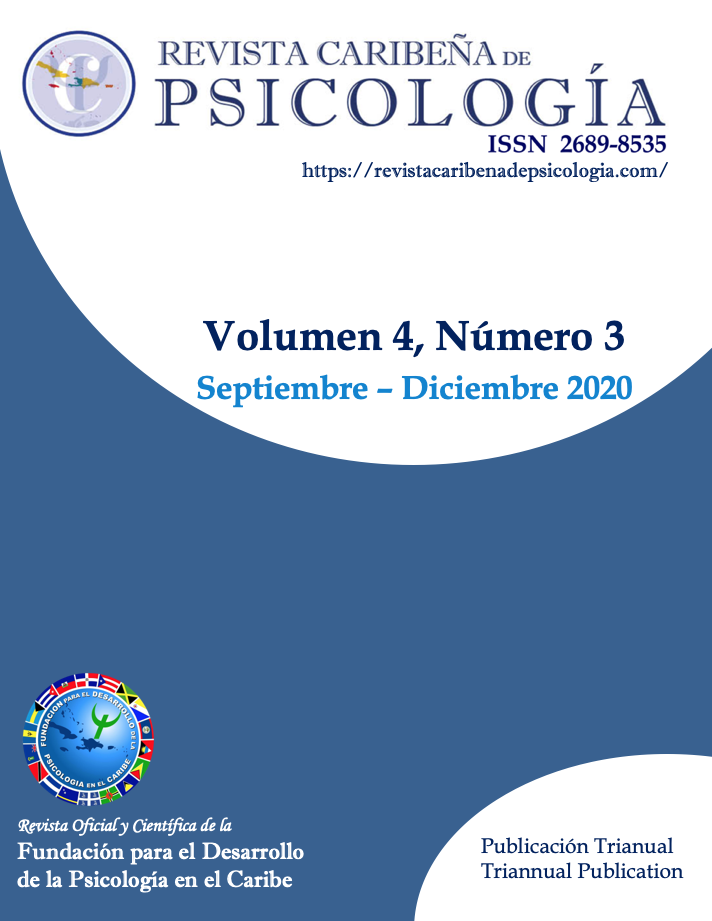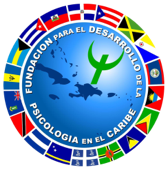The Experience of Obstetric Violence in Puerto Rican Adult Women: A Phenomenological Study from a Gender Perspective
DOI:
https://doi.org/10.37226/rcp.v4i3.4847Keywords:
violence, obstetric violence, institutional violenceAbstract
This qualitative study explores the experience of obstetric violence in 10 Puerto Rican women. Obstetric violence is a phenomenon where women experience disrespectful, abusive, and negligent treatment during prenatal care, childbirth, and postpartum by the professionals they serve. A qualitative design and phenomenological approach were used. The Wolcott Model was applied for the analysis of narratives. The stories respond to deliveries between the dates of 2006 to 2016. The study's findings revealed three categories: silenced to power, institutional violence, and "Snatching a Beautiful Illusion." The emerging categories reflect the physiological, emotional, and psychological consequences as a result of the practices and procedures of health professionals. The study concludes that obstetric violence is the exercise of power and control perpetrated by an institutionalized culture. The violence caused silence, disciplined self-determination, misinformation, and uncertainty during delivery.
References
Alba, C., Aler, I., & Olza, I. (2012). Maternidad y Salud: Ciencia, Conciencia y Experiencia. Ministerio de Sanidad Servicios Sociales e Igualdad. Secretaría General Técnica, Centro de Publicaciones Paseo del Prado. http://www.msssi.gob.es/organizacion/sns/planCalidadSNS/pdf/maternidadSaludCiencia.pdf.
Arguedas, G. (2014). La violencia obstétrica: propuesta concep-tual a partir de la experiencia costarricense. Cuadernos de inter-cambio sobre Centroamérica y el Caribe. 11(1), 145-169. https://revistas.ucr.ac.cr/index.php/intercambio/article/view/14238/13530
Ariza, N., & Herrera, G. (2012). El parto sin violencia: Un compromi-so de vida. Salud, Historia y Sanidad, 7(1), 43-60. https://doi.org/10.1909/shs.v7i1.154
Banuchi, R. (19 de octubre de 2015). Cesáreas a tutiplén en la Isla. Primera Hora. http://www.primerahora.com/noticias/gobierno-politica/nota/cesareasatutiplenenlaisla-1115287/
Belli, L.F. (2013). Obstetric violence: Another form of Human rights violation. Revista Redbioética/UNESCO, 4, 1(7): 25-34.
Benítez, G. (2008). Editorial: Violencia Obstétrica. Revista de la Facultad de Medicina, 31(1), 5-6.
Bowser, D. & Hill, K. (2010). Exploring evidence for disrespect and abuse in facility-based childbirth: Report of a landscape analysis. https://www.harpnet.org/resource/exploring-evidence-for-disrespect-and-abuse-in-facility-based-childbirth-report-of-a-landscape-analysis/
Calhoun, L. G., & Tedeschi, R. G. (2006). The Foundations of Post-traumatic Growth: An Expanded Framework. In L. G. Calhoun & R. G. Tedeschi (Eds.), Handbook of posttraumatic growth: Re-search & practice (p. 3–23). Lawrence Erlbaum Associates Pub-lishers.
Creswell, J. & Creswell, C. (2013). Qualitative inquiry and research design: Choosing among five approaches (4 eds.). SAGE Publica-tions.
D’ Oliveira, A. F., Diniz, S. G., & Schraiber, L. B. (2002). Violence against women in health-care institutions: An emerging prob-lem. Lancet. 359(9318),1681–5. https://doi.org/10.1016/s0140-6736(02)08592-6
Ehrenreich, B. & English, D. (2005). Brujas, parteras y enfermeras. Una historia de sanadoras. Edición Española Ed. La Sal, Barce-lona.
Espinoza-Reyes, E., & Solís, M. (2020). Decolonizing the Womb: Agency against Obstetric Violence in Tijuana, Mexico. Journal of International Women's Studies, 21(7), 189-206. https://vc.bridgew.edu/cgi/viewcontent.cgi?article=2350&context=jiws
Federici, S. (2010). Calibán y la bruja. Mujeres, cuerpo y acumulación originaria. Tinta Limón.
FIGO. (2014). International Federation of Gynocology and Obstet-rics.: https://www.figo.org/español.
Fornes V. (2011). Parirás con poder (pero en tu casa). El parto domici-liario como experiencia política contemporánea. Ed. CICCUS, Buenos Aires, p. 133-154.
Foucault, M. (2001). Los anormales. Edición Akal.
García, L. M. (2020, July). A concept analysis of obstetric violence in the United States of America. In Nursing forum.
Hernández R., Fernández, C., & Batista, P. (2014). Metodología de la investigación (4ta edición). Editorial Mc Graw Hill.
Katz, L., Amorim, M. M., Giordano, J. C., Bastos, M. H., & Brilhante, A. V. M. (2020). Who is afraid of obstetric violen-ce?. Revista Brasileira de Saúde Materno Infantil, 20(2), 623-626. https://doi.org/10.1590/1806-93042020000200017
Lucca, N., & Berrios, R. (2009). Investigación Cualitativa Fundamen-tos, Diseños y Estrategias. Ediciones SM.
Lund (2013). ¿Qué es la violencia obstétrica?: Violencia sexual, de género y social. Blog Espacio Perinatal, Parto y Puerperio. http://www.espacioperinatal.com/que-es-la-violencia-obstetrica-2/
Machado, M. (2014) "¿Cómo parimos?: de la violencia obstétrica al parto humanizado". Monografía. Montevideo: URFP. https://sifp.psico.edu.uy/sites/default/files/Trabajos%20finales/%20Archivos/trabajo_final_grado_machado.pdf
Mena-Tudela, D., Iglesias-Casás, S., González-Chordá, V. M., Cervera-Gasch, Á., Andreu-Pejó, L., & Valero-Chilleron, M. J. (2020). Obstetric Violence in Spain (Part I): Women’s Percep-tion and Interterritorial Differences. International journal of en-vironmental research and public health, 17(21), 7726. https://doi.org/10.3390/ijerph17217726
Martín-Baró, I. (1989). Sistema, Grupo y Poder. Psicología Social desde Centroamérica II. UCA Edit.
Odent M. (2000). Entering the World: The De-Medicalization of Childbirth. Dewey Edition. Boyars Publishers, Incorporated, Marion.
Organización Anmistía Internacional. (2016). Informe Nacional 2015-2016 de Anmistía Internacional y Derechos Humanos. https://www.amnesty.org/es/latest/research/2016/02/annual-report-201516/
Organización Mundial de la Salud. (2014). Sexual and reproductive health: Prevention and elimination of disrespect and abuse during childbirth. https://www.who.int/reproductivehealth/topics/maternal_perinatal/statement-childbirth/en/
Paolini, I. (2011). Violencia Perinatal: una nueva conceptualización. Presentado en el III Congreso Internacional de Investigación y Práctica Profesional en Psicología XVIII Jornadas de Investi-gación Séptimo Encuentro de Investigadores en Psicología del MERCOSUR. Facultad de Psicología - Universidad de Buenos Aires, Buenos Aires. http://www.aacademica.org/000-052/59
Parrilla, A. M., Gorrín, J. J., & Dávila, R. R. (2008). Conocimiento, las actitudes y las experiencias del embarazo y el parto en un grupo de madres puertorriqueñas con parto por cesárea. Re-vista Puertorriqueña de Medicina y Salud Pública, 10, 16-24. https://medicinaysaludpublica.com/wp-content/uploads/2017/12/Primera-investigación-sobre-cesáreas-en-Puerto-Rico.pdf
Pereira, C., Domínguez, A., & Toro, J. (2015). Violencia obstétrica desde la perspectiva de la paciente. Revista de Obstetricia y Gi-necología de Venezuela, 75(2), 81-90. http://ve.scielo.org/scielo.php?script=sci_arttext&pid=S0048-77322015000200002
Puerto Rico: Gente Saludable (2010). Área Focal 2020 16: Salud de la Madres, el Infante y el Niño. Departamento de Salud, Puerto Rico.
Quevedo, P. (2012). Violencia obstétrica: una manifestación oculta de la desigualdad de género (Disertación Doctoral). Universidad Nacional de Cuyo. Mendoza, Argentina. https://bdigital.uncu.edu.ar/objetos_digitales/4785/tesisquevedo.pdf
Rivera-Viña, J. (2015). La realidad de las cesáreas en Puerto Rico: La incidencia de cesáreas en Puerto Rico es alta, pero hay al-ternativas para lograr bajarla. Galenus Revista para los Médicos de Puerto Rico. 32(4), 169. https://www.galenusrevista.com/?La-realidad-de-las-cesareas-en
Schechter, S. (2005). Women and male violence: The visions and strug-gles of the battered women’s movement. En R. L. Kennedy Ber-gen, J. L. Edleson, & C. M. Renzetti (Eds.), Violence against women: Classic papers. (198-219). Boston: Allyn & Bacon.
Seligman, M. (1996). The Optimistic Child: Proven Program to Safe-guard Children from Depression & Build Lifelong Resilience. Hough-ton Mifflin.
Silal, S. P., Penn-Kekana, L., Harris, B., Birch, S., & McIntyre, D. (2012). Exploring inequalities in access to and use of maternal health services in South Africa. BMC health services research, 12, 120. https://doi.org/10.1186/1472-6963-12-120
Wolcott, H. (1994). Writing up qualitative research (2nd ed.). Sage.
Zacher, D. (2015). Obstetrics in a Time of Violence: Mexican Midwives Critique Routine Hospital Practices. Medical Anthropology Quarterly, 29(4) 437–454. https://doi.org/10.1111/maq.12174
Zichi-Cohen, M., & Omery, A. (2003). Escuelas de fenomenología: implicaciones para la investigación. En J.M. Morse (Ed.), Asuntos críticos en los métodos de investigación cualitativa. Contus, Editorial de la Universidad de Antioquia, Facultad de Enfermería.
Zwingel, S., & Zwingel. (2016). Translating International Women's Rights. UK. Palgrave Macmillan.
Published
How to Cite
Issue
Section
License
Copyright (c) 2020 Zulmarie Hernandez

This work is licensed under a Creative Commons Attribution 4.0 International License.







